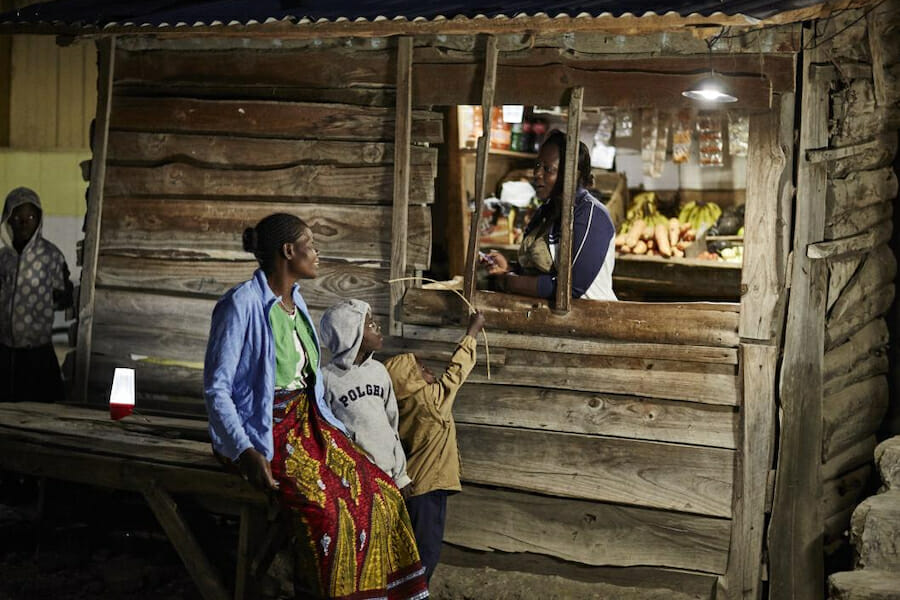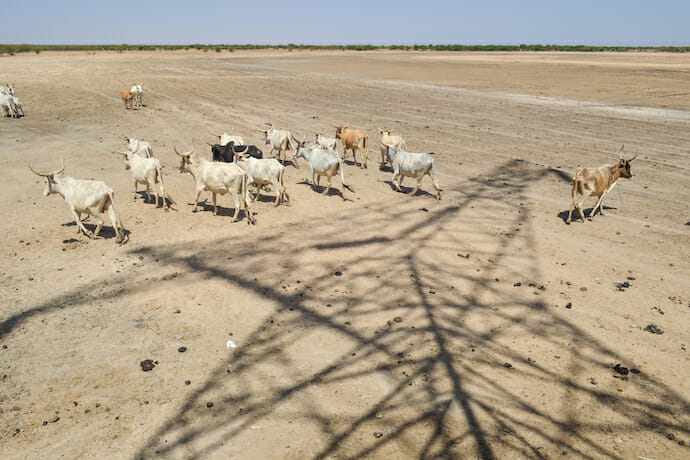
Powering Africa Is Empowering America
It’s not something that we talk about enough, but Africa’s economic fate should be important to us. Prior American approaches to Africa have varied in their focus, from public health to business development, but there’s one aspect that should be front-and-center in the goals of the Biden administration: getting access to electricity to more Africans. After all, power is the key to aiding Africa’s rapidly-growing population and economy—as well as U.S. interests.
In the next 30 years, one in every four people in the world will be African, including one billion people under the age of 18. Moreover, recent free trade developments mean that Africa’s economy could grow to $29 trillion during this same time—more than ten times what it is today.
But Africa’s opportunities are thwarted by underdevelopment, terrorism, and political instability. While there’s no magic bullet to solve all these problems, there is a thread connecting their solutions: electricity.
Inability to keep the lights on is one of the main issues stunting private sector development in Africa. Right now, 600 million Africans, twice the population of the United States, don’t have access to electricity—the average American’s refrigerator uses more electricity in a year than nine Ethiopians do. This dearth of electricity only makes building a modern economy that much harder. Providing opportunities for Africa’s growing population requires creating 18 million jobs each year, but this industrialization cannot happen without a reliable power supply.
Unemployment, particularly for young men, is a massive risk. Massive numbers of unemployed, disaffected young men present major security issues. Terrorist attacks against civilians and governments in West Africa have increased five times since 2016, and terrorist organizations have stepped up their attacks and propaganda outreach in the midst of COVID-19. While the reasons for joining such organizations are complex, financial incentives are one of the driving factors for many terrorist recruits.
Those who don’t turn to extremist organizations also face the same economic pressures—just consider the million African economic migrants that fled to Europe during the last decade, and millions more displaced within Africa. Without the power supply to drive a modern economy, more Africans will embrace a fight-or-flight response.

Lack of reliable electricity access is also a cause of modern political instability. The majority of the world’s failed states, in which a government loses control and can’t govern its citizens, are in Africa. A state failing undermines all kinds of normal governmental functions that underpin a successful society. That means the rule of law, curbing political corruption, and public goods like roads, water, and security. Combined with terrorist threats, these blank spaces on a map can provide cover for trafficking in weapons, humans, and drugs. Promoting good governance and human rights in today’s Africa requires an effective government, and that requires electricity.
America should care. After all, new investment and export opportunities loom large for American businesses. Africa’s continental economy is expanding among the fastest in the world, growing 5% each year since 2000. Within five years, McKinsey and Company expects $5.6 trillion in business opportunities on the continent. American companies—and thus American workers—face significant opportunities to find new customers in Africa and reverse a declining export trend over recent years.
Stable states and growing economies mean more secure access to natural resources abundant in Africa but scarce in America. Africa is a key supplier of over a dozen minerals, for which America is 100% import-reliant, that have various commercial and military applications, such as jet engines, global positioning systems, and automobiles. A consistent flow of Africa’s abundant oil and gas supplies is also key to the smooth functioning of world oil prices, which, in turn, helps keep America’s energy industry stable.
How can America boost African electricity access? Well, plenty of African countries are exploring nuclear power, which can provide large amounts of electricity for decades. America can provide technical assistance, training, and construction services. Building and operating a nuclear power plant is essentially a 100-year commitment, and American involvement, rather than Chinese or Russian, can help ensure a safe and secure nuclear process, from establishing regulatory bodies to protecting uranium from falling into the wrong hands.
One way the Biden administration could help is by expanding what’s called the “Power Africa” program. Power Africa deploys America’s technological, commercial, and financial capabilities to help increase Africans’ electricity access. The credibility of the U.S. government is used to attract private capital to profitable electricity generation and connection projects by collecting data and creating investment platforms. But the heavy lifting is done by private companies, not U.S. taxpayers—each $1 of U.S. government investment is met by approximately $90 of private investment. And that $1 is primarily invested in specific high-value projects that can secure private financing, meaning the program returns more money to taxpayers than it puts in. Through the economic development it sparks, Power Africa is estimated to support 40,000 American jobs and billions of dollars in exports by 2030.
A thriving and stable Africa requires a rapid expansion of reliable power. From growing economic opportunities to reducing terrorism and supporting effective governance, the importance of electricity to Africa’s growth presents opportunities that America really can’t afford to overlook.

